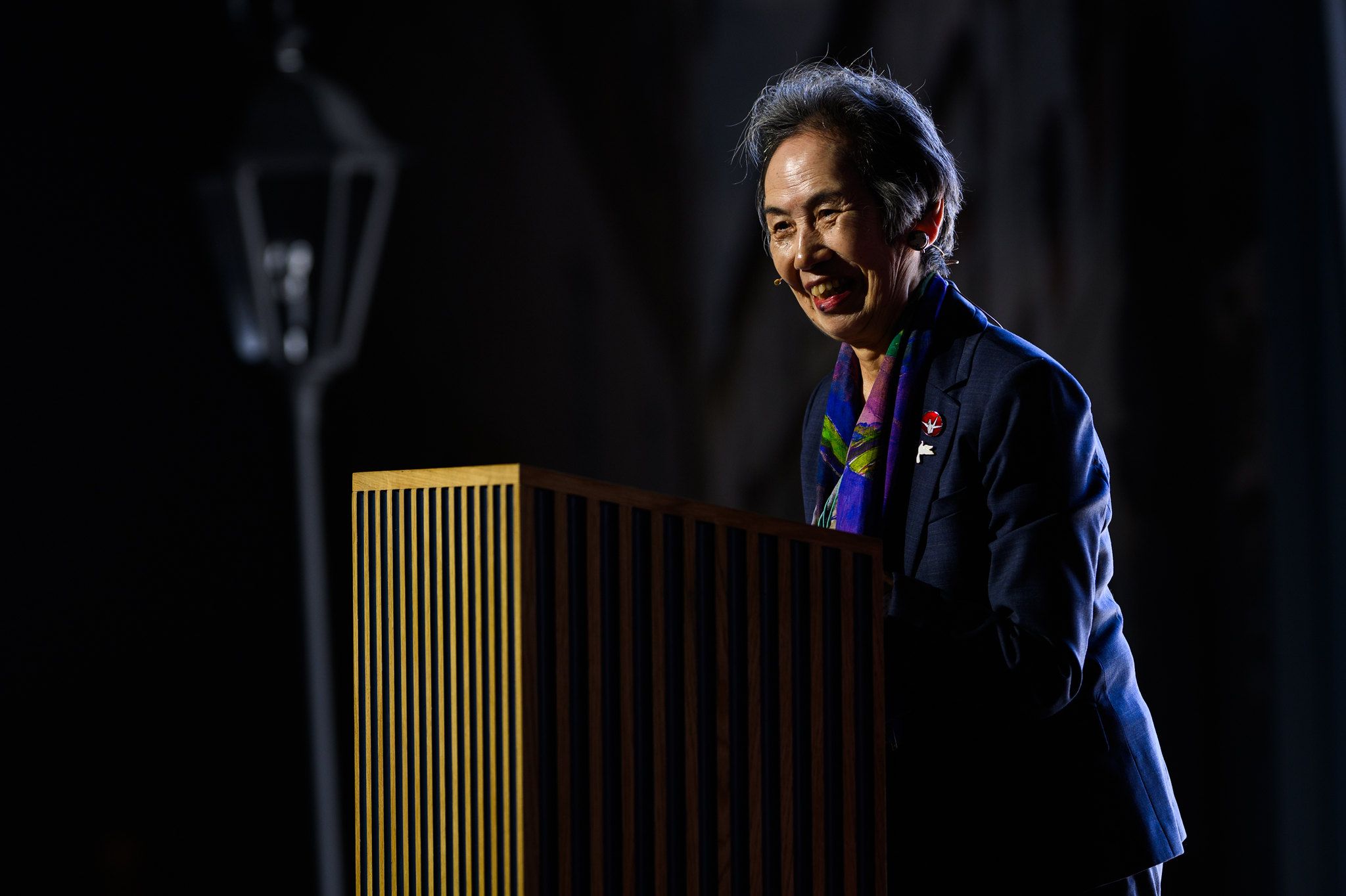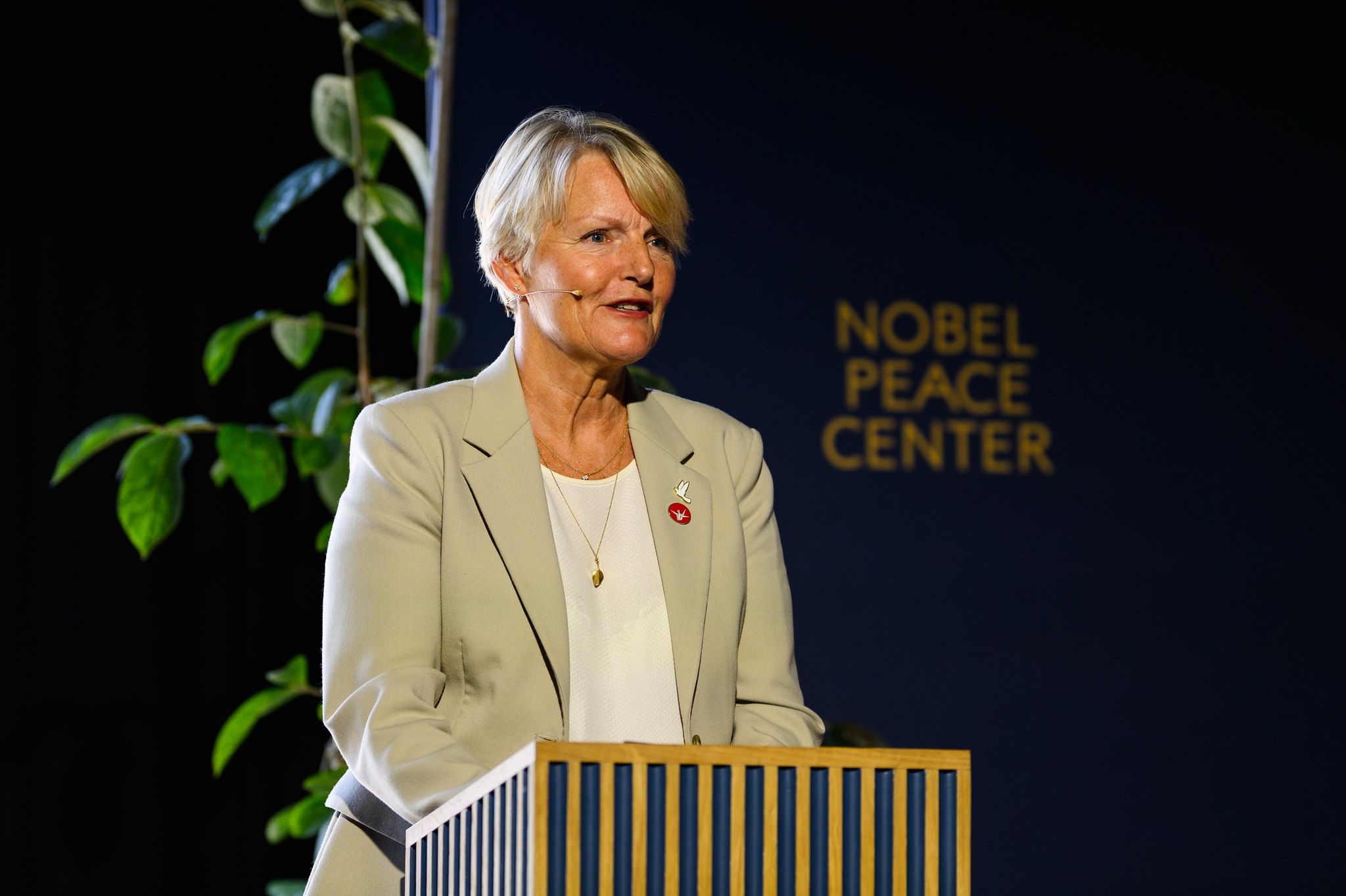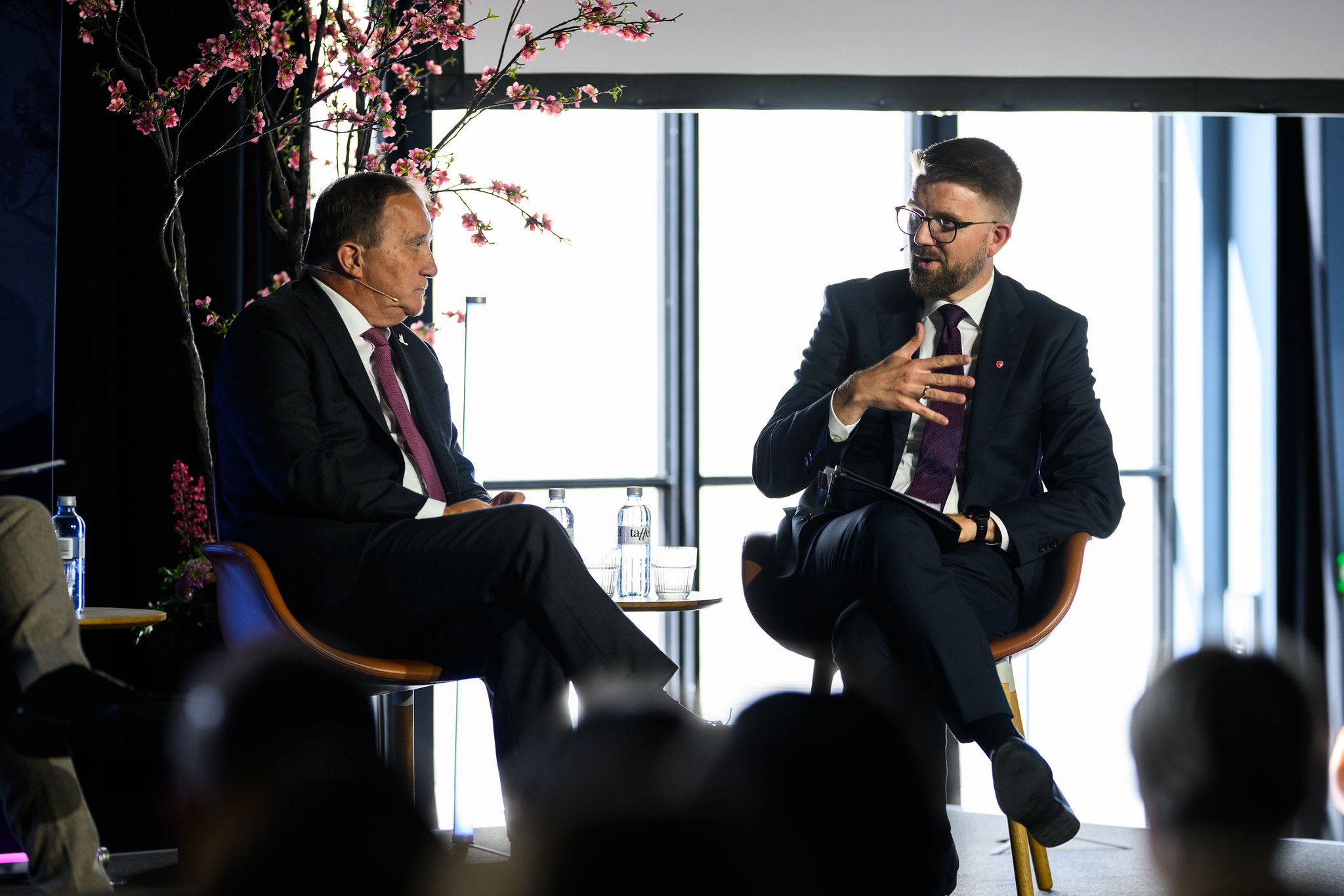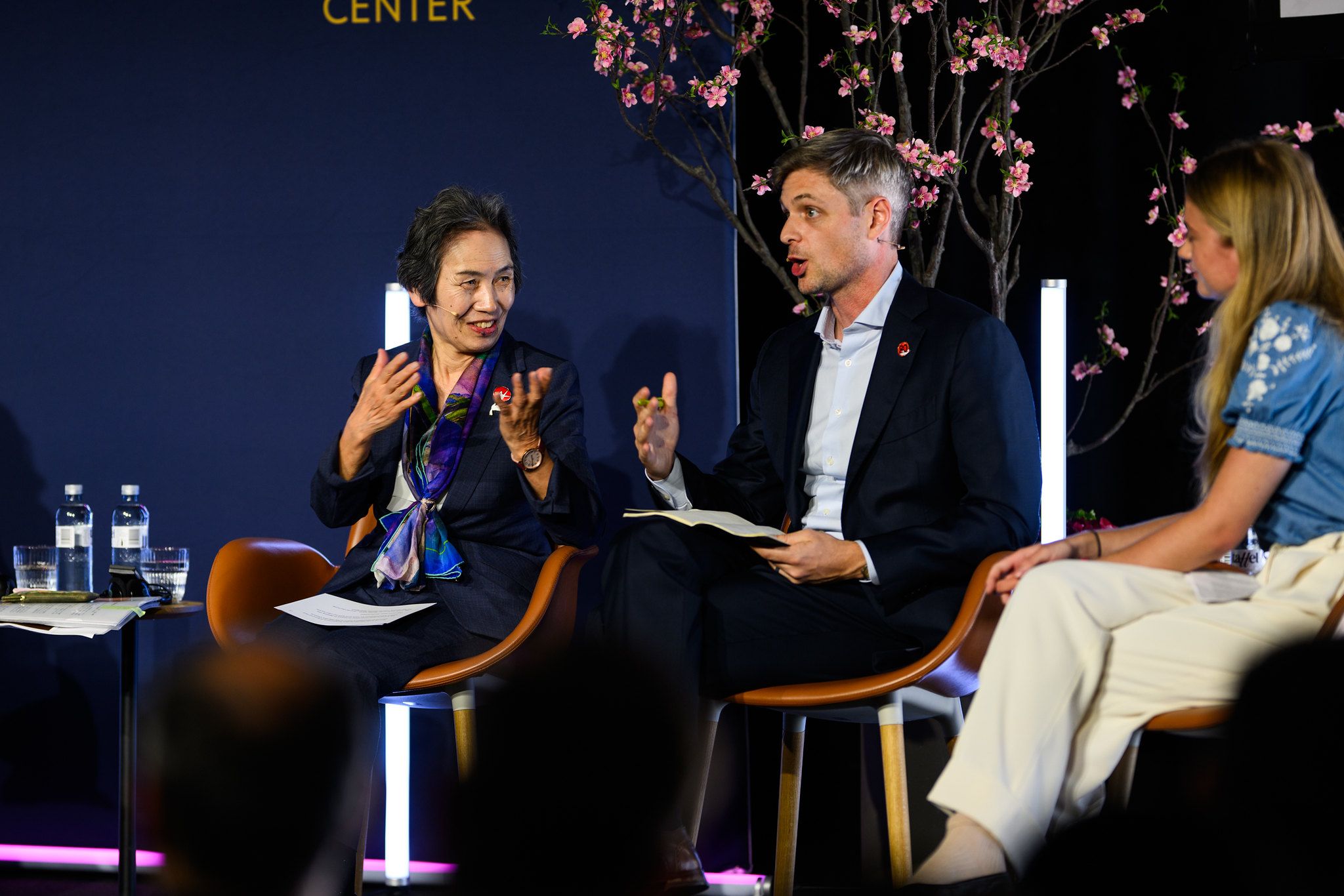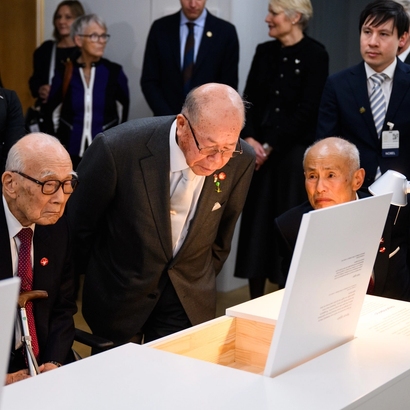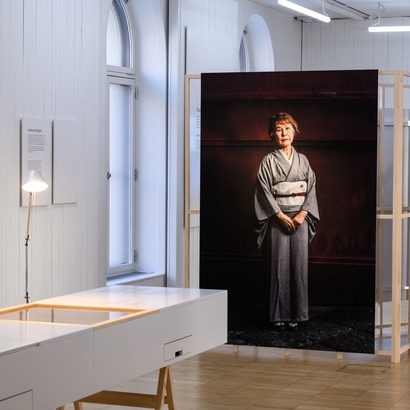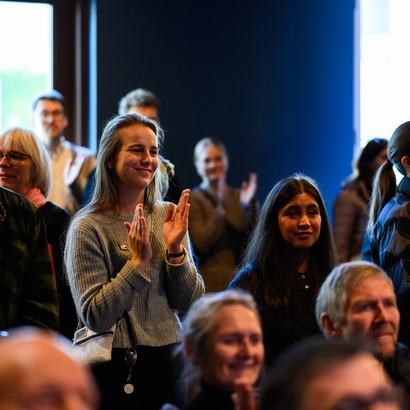80 years since Hiroshima: Nobel Peace Prize laureates and experts unite
Each year, the Nobel Peace Center asks the Nobel Peace Prize laureates how we can support their work. Last year's peace prize laureate, Nihon Hidankyo, the Japanese organisation for atomic bomb survivors, was clear in their appeal: “We are the only ones in the world who have experienced this. But we are old, and soon we will be gone. Help us to share our story – before it is too late.”
Our annual international peace conference was held on 6 August to mark the 80th commemoration of the atomic bombs being dropped on Hiroshima and Nagasaki (9 August). This year’s conference brought together four peace prize laureates, experts, activists, representatives from civil society, 200 physical attendees and tens of thousands of digital participants.
A representative for last year's peace prize laureate, Nihon Hidankyo, Assistant Secretary-General Masako Wada, shared in her address personal experiences from Nagasaki in 1945 and pleaded to be heard. For her and other survivors, it is crucial to stress that humans who hold the key to abolishing nuclear weapons: “The hibakusha – survivors of the atomic bombings in 1945 – are the ones who know the humanitarian consequences of the use of the nuclear weapons. We will continue to convey that reality. Please listen to us, please empathize with us. Find out what you can do and take action together with us. Nuclear weapons cannot coexist with human beings. Nuclear weapons were made by humans, and used by humans. So it is also up to us humans to abolish them by our wisdom, public conscience and responsibility,” said Masako Wada. “No more Hibakusha! And no more war!”
In her opening speech, Kjersti Fløgstad, Director of the Nobel Peace Center, expressed her admiration for the survivors’ strength and their ability to hold on to hope for a world free of nuclear weapons, even in challenging global circumstances:
“Masako Wada and her fellow hibakushas in Nihon Hidankyo are such beacons of hope. They were there, 80 years ago when the mushroom clouds soared over Hiroshima and Nagasaki. Since then, they have worked tirelessly to tell the world about the consequences of the atom bomb – contributing to the nuclear taboo and the fact that the bombs have not been used since. To have you here today, Masako-san, therefore is a great honor. If you do not lose hope, who are we to?”
Among the speakers was also Nobel Peace Prize laureate 2023, human rights champion Narges Mohammadi, who emphasized the importance of global unity against nuclear weapons in a powerful address. She highlighted that if the population in her home country Iran were able to decide their own future, they would choose democracy, freedom, equality and human rights over the authorities’ nuclear weapons programme.
Other peace prize laureates participating in the Oslo conference included Daniel Högsta and Venessa Hanson from ICAN (2017), as well as Sasha Romantsova from the Center for Civil Liberties (2022). The Norwegian government was represented by State Secretary Eivind Vad Petersson from the Ministry of Foreign Affairs, who took part in a panel discussion with former Swedish Prime Minister Stefan Löfven (now Chair of SIPRI) on the topic “Can we avoid a nuclear arms race in 2025?”.
In the session about how we can renew dialogue and strengthen the pursuit for a world free of nuclear weapons, climate activists Penelope Lea and Emma Pike, professor and founder of the Nuclear Knowledges program at Sciences Po, Benoît Pelopidas, Maya Soetoro-Ng from the Matsunaga Institute for Peace and the Obama Foundation, Zia Mian, co-director of the program of Science and Global Security from Princeton University, Miranda Aaland from No To Nuclear Weapons and former governing mayor of Oslo and current Secretary General of Norwegian People's Aid, Raymond Johansen, were among the participants.
In response to the Nobel Peace Prize laureates’ plea for help in spreading their message, the Nobel Peace Center has developed educational materials with the theme of nuclear disarmament. School classes can learn about this at the Nobel Peace Center, but teachers can also – anywhere in the world – download resources and use them in their own classrooms. The materials are available in both Norwegian and English, and interest in these digital resources has set a record for traffic on the website.
Watch the conference:
Thanks to our main partners Hydro and Reitan Retail, and to our supporters for the conference and festival: the Norwegian Ministry of Foreign Affairs, Oslo Municipality, the Bergesen Foundation, Outrider Foundation, Lex International and the Scandinavia Japan Sasakawa Foundation.
Related:
Share:
